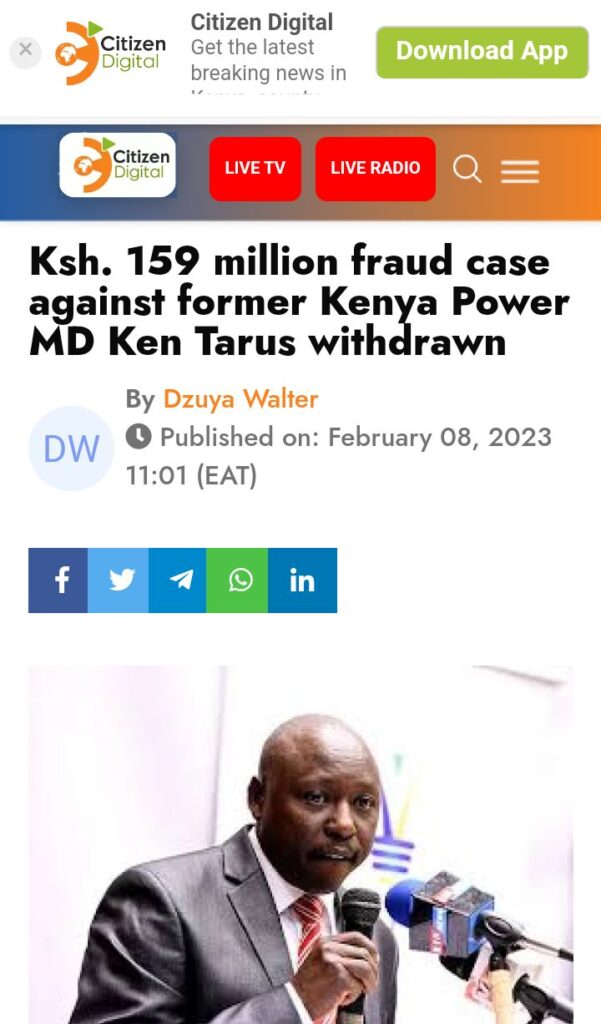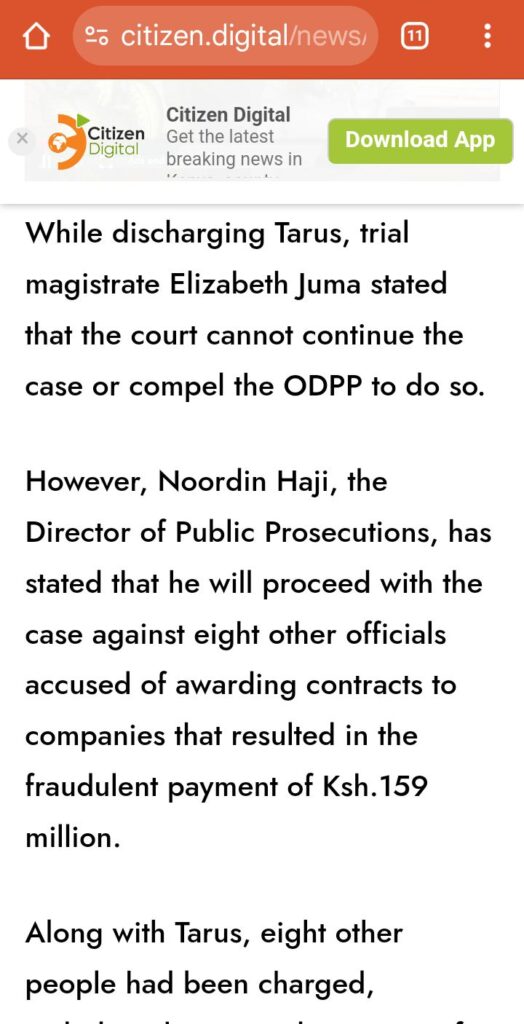Dr. Kenneth Tarus, the former Managing Director of Kenya Power and Lighting Company (KPLC), is reportedly being considered for a high-ranking government position as a Principal Secretary (PS) in Kenya.
This development has sparked public concern because of his history with corruption allegations during his leadership at KPLC.
During his time as the head of the power company, Dr. Tarus faced accusations of being involved in the irregular award of contracts worth millions of Kenyan shillings.
In 2018, he was arrested alongside other senior officials and charged with several offenses, including conspiracy to commit an economic crime and failing to follow proper procurement procedures.

The scandal rocked the public utility company and contributed to widespread criticism of its management and alleged misuse of public funds.
In February 2023, legal proceedings took a turn when the court dropped the corruption charges against Dr. Tarus. The Director of Public Prosecutions (DPP) applied for the withdrawal of the charges, stating that there was insufficient evidence to prove his involvement in any wrongdoing.
While this decision legally cleared his name, public opinion remains divided about whether he should be considered for a senior role in government.
Many Kenyans are questioning the government’s decision to shortlist him for a top government job.
They argue that appointing someone previously linked to such a major corruption scandal sends the wrong message about accountability and integrity in public service.
Transparency and trust in government institutions have long been a concern in the country, and this move is seen by some as undermining efforts to build a corruption-free administration.

Supporters of Dr. Tarus argue that since he was not found guilty, he has every right to be considered for public office.
They maintain that his expertise and experience in managing a major corporation could be valuable to the government.
However, others believe that public service roles should be reserved for individuals with unquestionable integrity and clean records to restore and maintain public trust.
This situation raises important questions about how public officials are vetted for senior government positions and the criteria used to determine their suitability.
The government faces a challenge in balancing legal exoneration with public perceptions.
While Dr. Tarus may have been cleared by the courts, concerns about the ethical standards of government appointments continue to fuel debate.
Whether Dr. Tarus will secure the position remains to be seen, but the controversy surrounding his consideration highlights the growing demand for transparency and accountability in Kenya’s public sector.
The public continues to call for leaders who embody integrity and a commitment to serving the nation without scandal or controversy.





















Add Comment